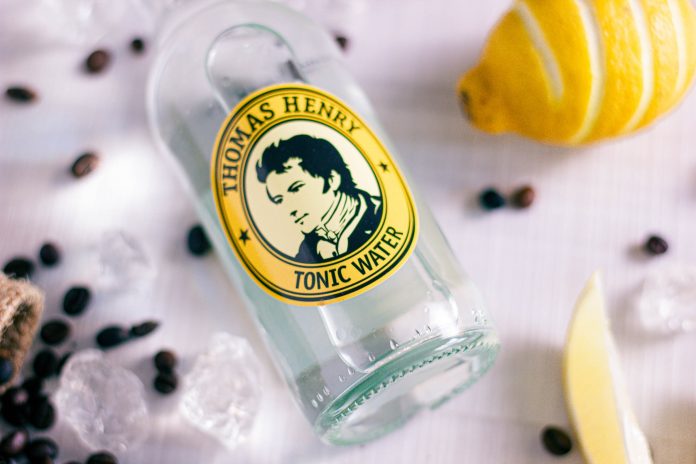“Keep yourself hydrated” is a phrase that we most commonly read or hear from our elders and doctors. We know that water is one of the basic requirements of our body, and drinking fewer amounts of water can result in dehydration and other health issues. Which will be hindering our daily routine. Health and fitness are not a new concept, and if we dig a little deeper into the past, we will notice a significant difference in the fitness regime and recommended procedures. A decade back, the definition of a healthy lifestyle and fitness was all about taking a walk in a park and eating healthy food minus junk. People were not fretting about their calorie intake or restriction, but our food and eating habits have changed with changing times.
Glance a few years back into the health and fitness realm; you will see the emergence of detox water and tonic water coming back in trend. The emergence of tonic water is not recent, but it dates back to the 19th century. One might wonder if there is any difference between club soda, sparkling mineral water, seltzer, or tonic water. Apart from their significant differences, there is a standard string in these four beverages, and that is, they are all carbonated.
What Does Tonic Water Have?
Tonic water, however, contains the unique taste among all four. The use of tonic water was initially for medicinal purposes to prevent malaria in tropical areas. It contains some quantity of quinine. Compared to club soda, seltzer, and sparkling mineral water, tonic water is known to have calories and carbs. Many people now use diet tonic water to make their cocktails or other drinks to avoid excessive carbs and calories.
Is tonic water healthy?
The common perception will say it must be healthy after all, it has water in its name, but the truth is that tonic water is more than just water. Let’s compare the nutritional values of seltzer, club soda, tonic water, and sparkling mineral water. Tonic water is the one with calories. Since it contains quinine which gives it a bitter taste, many brands use corn syrups or other sugars to mask the bitter taste of tonic water. Tonic water has no nutrients, but it has zinc, sodium, and copper traces. Tonic water has 32.2 carbs which are more or less equivalent to Sprite that contains 37.4 grams of carbohydrates.
Hence drinking tonic water is similar to drinking any other soda drink and has nothing in common with drinking plain water. Many health experts say to limit the intake of sugary carbonated drinks and frequent consumption of tonic water with 32.2 grams is certainly not healthy.
Is there a diet tonic drink?
Ever since people have become more conscious about their health and the food or water they intake, there have been many sugar-free drinks. The everyday use of tonic water is mainly for cocktails or gin. People who follow a less sugary diet or reducing the extra carbs will prefer their drinks to be sugar-free. We see diet coke and diet Pepsi. When consuming tonic water in a cocktail, people may become curious about diet tonic water ingredients to see if they exceed their daily sugar intake limit as suggested by their nutritionist or fitness coach.
It is a fact that whatever we eat or drink affects our health in the longer run. If we search for the best diet tonic water, we may find very few brands available in the US and approved by the FDA. When we are cautious about our food and drinks, we look for options that can help us maintain our weight and eating patterns within the defined calorie limits. People these days prefer diet tonic water because it does not contain any calories or carbohydrates. The brands making diet tonic water have replaced the sweeteners with alternative sugar brands that offer more health benefits and less sugar boost to the body.
If we analyze diet tonic water and its benefit, we will assess its nutrients and how healthy it is. As a nutritionist, when you recommend a diet tonic water as a replacement for usual tonic water. What is diet tonic water? Although it has zero calories, most of them contain saccharin, a non-nutritive and carbs-free artificial sweetener, making it a safe replacement for the usual tonic water used in cocktails and gins.
Health benefits of drinking quinine
Originally, tonic water had its medicinal uses due to quinine, and people believe that drinking tonic water will make people immune to malaria. British soldiers and armies deployed in tropical areas used tonic water and gin to prevent malaria, but here is a myth buster. Gin was perfect for covering the bitter taste. An average bottle of tonic water contains 83mg of quinine per liter. For preventing or treating malaria, an individual needs to have 1000 mg of quinine every eight hours for three to eight days. We still see diet tonic water or tonic water used in making cocktails and other drinks but knowing that it contains quinine, one might wonder if it is healthy to have cocktails every weekend.
Besides its researched efficacy for treating malaria for centuries, there is no solid evidence regarding the other benefits of quinine. For example, people believe that quinine can also help with nighttime leg cramps, but there is no scientific evidence to back this notion.
Who should avoid quinine or tonic water?
Consuming 83mg of quinine per liter of tonic water is safe and permitted by FDA, it can still cause allergic reactions in certain conditions. Therefore, the following people shall avoid tonic water or any other quinine medications.
- Pregnant or breastfeeding mothers
- People with increased heart rhythm
- Avoid tonic water if you have liver or kidney disease
- Those with low blood sugar.
Besides these health conditions, one should also avoid or take lesser amounts of diet or regular tonic water if they have meds like antidepressants, antacids, statins, or seizure medications.
Conclusion
Thanks to the advancements in science and medicine that we can enjoy the health and food we like while staying within our calorie intake limits. Who doesn’t want to party and enjoy few drinks with friends on weekends? We see people enjoying martinis or cocktails, or some even consume plain tonic water. Tonic water is one of the key ingredients for cocktails, and those who cut down their sugar intake opt for diet tonic water. There are no calories or sugar in diet tonic water, making it safe for those going sugar-free or having diabetes. There are no risks in consuming 83mg or quinine per liter of tonic water, but it does not have any known benefits other than treating malaria, which requires higher doses of quinine than tonic water.





















